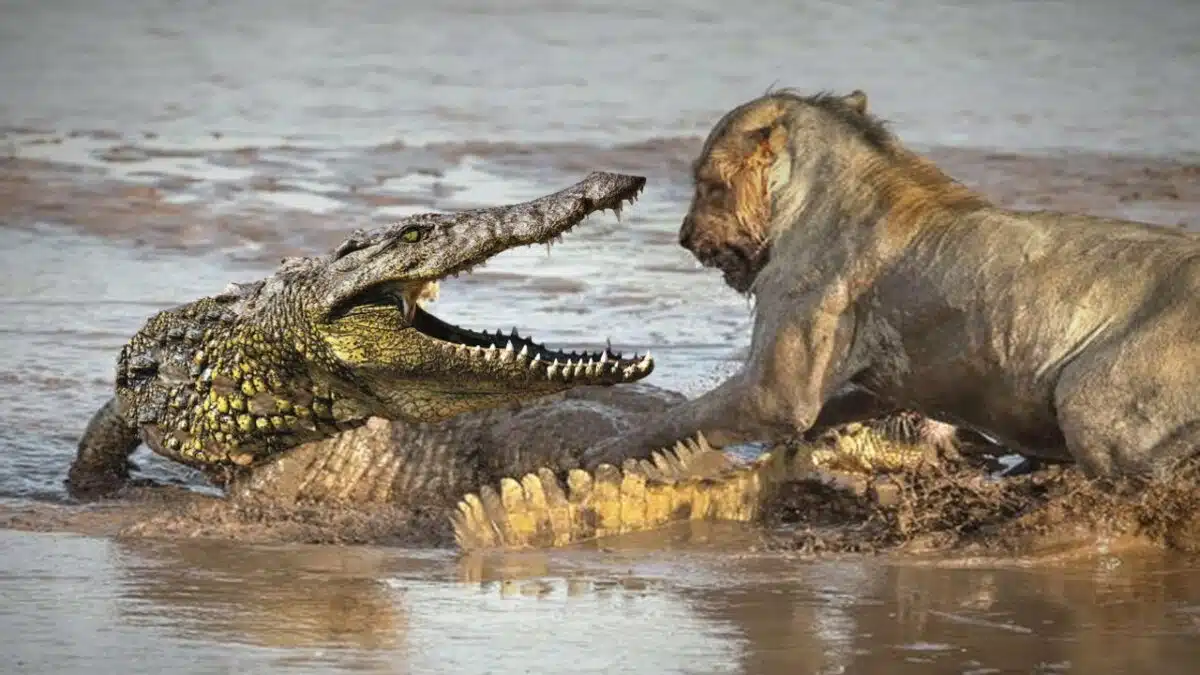African Lion Vs. Nile Crocodile – both are lethal apex predators, but which one is the most blood-thirsty one?
Are you curious how African Lions and Nile Crocodiles would compare to each other in a fight? Well, these two creatures of the wild are among nature’s fiercest predators, but which one rules the landscape?
To learn more about their behaviors and power dynamics, keep reading to learn about the African Lion Vs. Nile Crocodile. This guide will detail some critical differences between both animals and the particular survival traits they possess that give them a unique edge against each other in any confrontation.
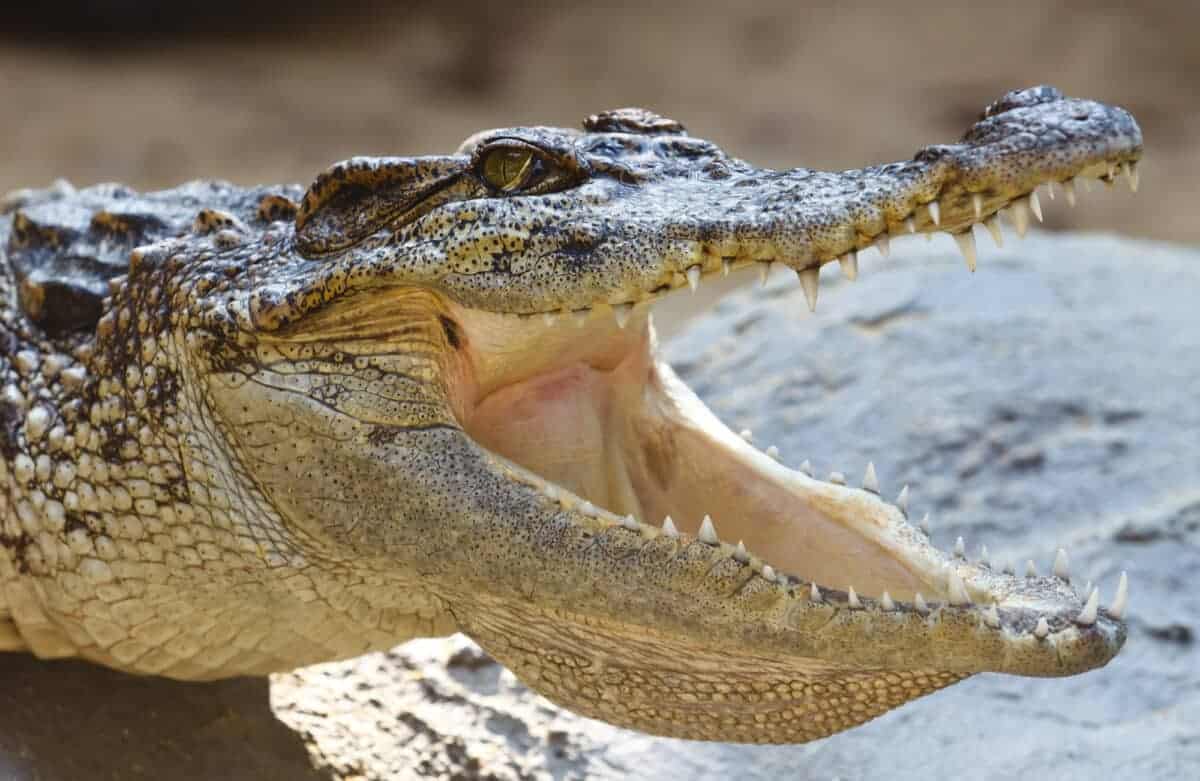
So let’s get started and explore who comes out victorious!
Key Points
- African lions have evolved for speed and agility, while Nile crocodiles have adapted for aquatic predation.
- The African lion preys on large ungulates in coordinated group hunts. Meanwhile, the Nile crocodile opportunistically feeds on a variety of prey near water.
- Lions rely on physical attributes and social structure for defense, while crocodiles use their robust bodies and powerful jaws.
- The Nile crocodile is a highly adapted aquatic predator with excellent swimming abilities, while lions are more comfortable on land.
- The outcome of a fight between an African lion and Nile crocodile would depend on various factors, but both are apex predators facing threats of extinction.
African Lion Vs. Nile Crocodile: Comparison Table
| Traits | African Lion | Nile Crocodile |
|---|---|---|
| Size | Height: 3.5 – 4 feet (at the shoulder) Weight: 265 – 420 pounds | Length: Up to 16 – 18 feet Weight: Up to 1,650 to 2,200 pounds |
| Diet | Carnivorous: Preys on large ungulates such as zebras and buffalos | Carnivorous: Feeds on fish, reptiles, birds, and mammals |
| Habitat | Grasslands, savannas, and open woodlands | Rivers, lakes, and swamps |
| Hunting Strategies | Cooperative hunting in prides | Ambush predators; lie in wait near the water’s edge |
| Social Behavior | Social animals that live in prides | Solitary hunters, minimal social interactions |
| Strengths | Powerful physique and sharp claws | Strong jaws and excellent swimming ability |
| Conservation Status | Vulnerable (IUCN Red List) | Least Concern (IUCN Red List) |
Anatomies: African Lion Vs. Nile Crocodile
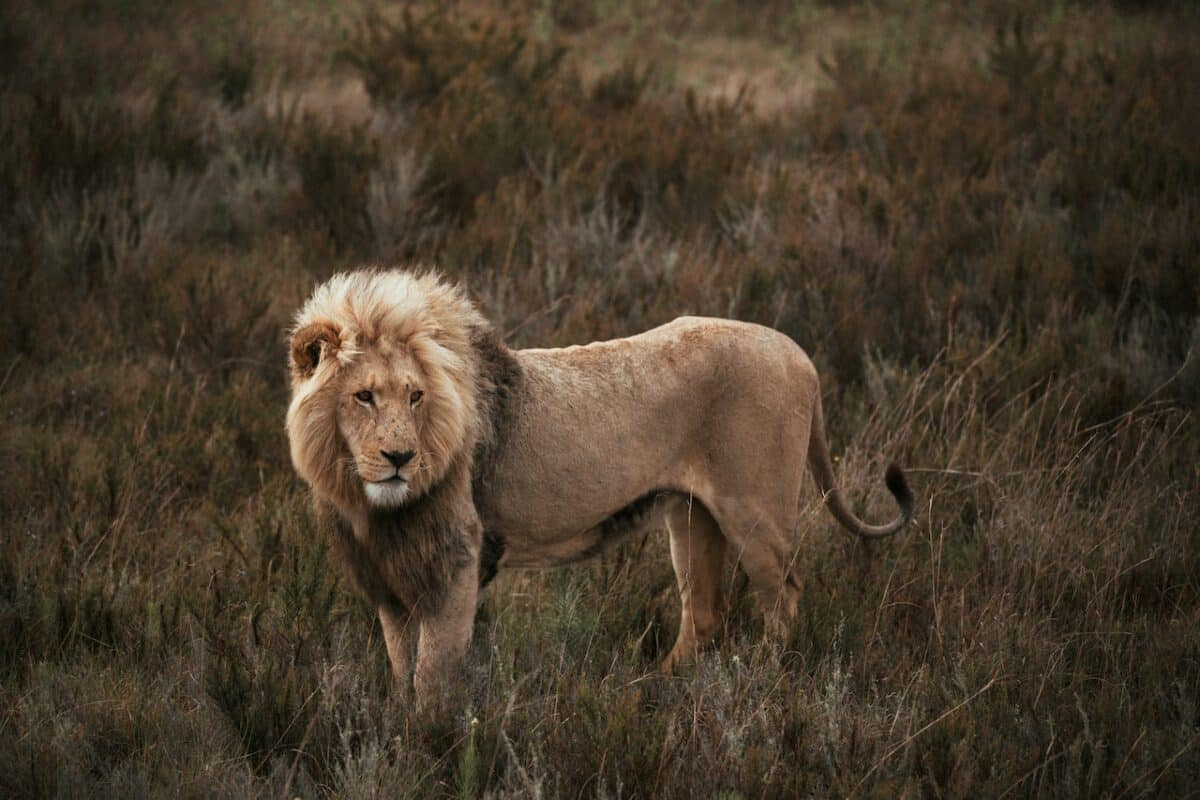
When comparing the anatomies of African lions and Nile crocodiles, it’s hard to imagine two more different species. While both are fearsome predators in their own right, they have evolved vastly different physical attributes to help them thrive in their respective environments.
Lions, for example, are built for speed and agility. They have powerful muscles and a sleek, aerodynamic frame that allows them to chase down prey with incredible speed.
Meanwhile, Nile crocodiles are aquatic predators with massive jaws and thick, sturdy bodies that enable them to take down prey in and out of water. Despite their differences, both lions and crocodiles are remarkable examples of the incredible diversity and adaptability of life on our planet.
Diet and Hunting Techniques
The African lion and the Nile crocodile have distinct diets and feeding habits. These reflect their evolutionary adaptations and natural habitats.
African Lion
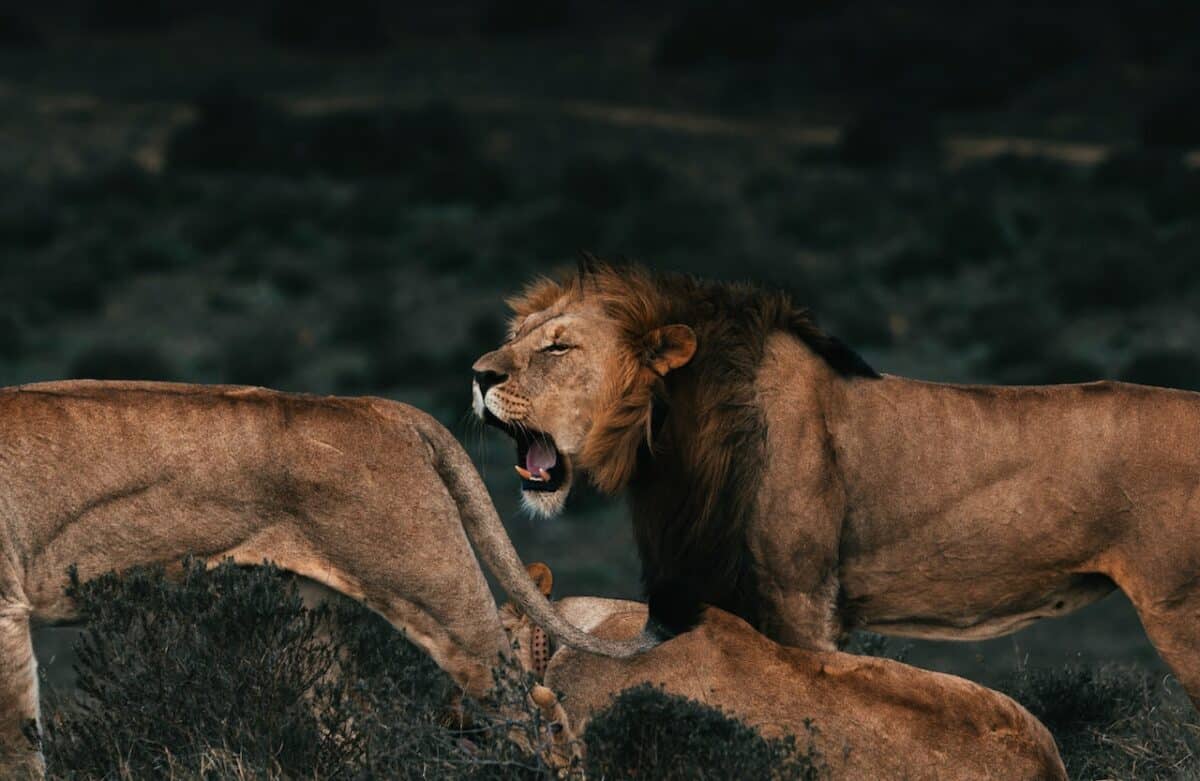
The African lion preys primarily on large ungulates such as wildebeests, zebras, and buffalos. They hunt in coordinated groups, using their powerful physiques and sharp claws to bring down their prey. These big cats rely on their strength, speed, and strategic hunting techniques to ambush and overpower their victims.
Learn how the African Lion Compares to the Cape Wild Dog here.
Nile Crocodile
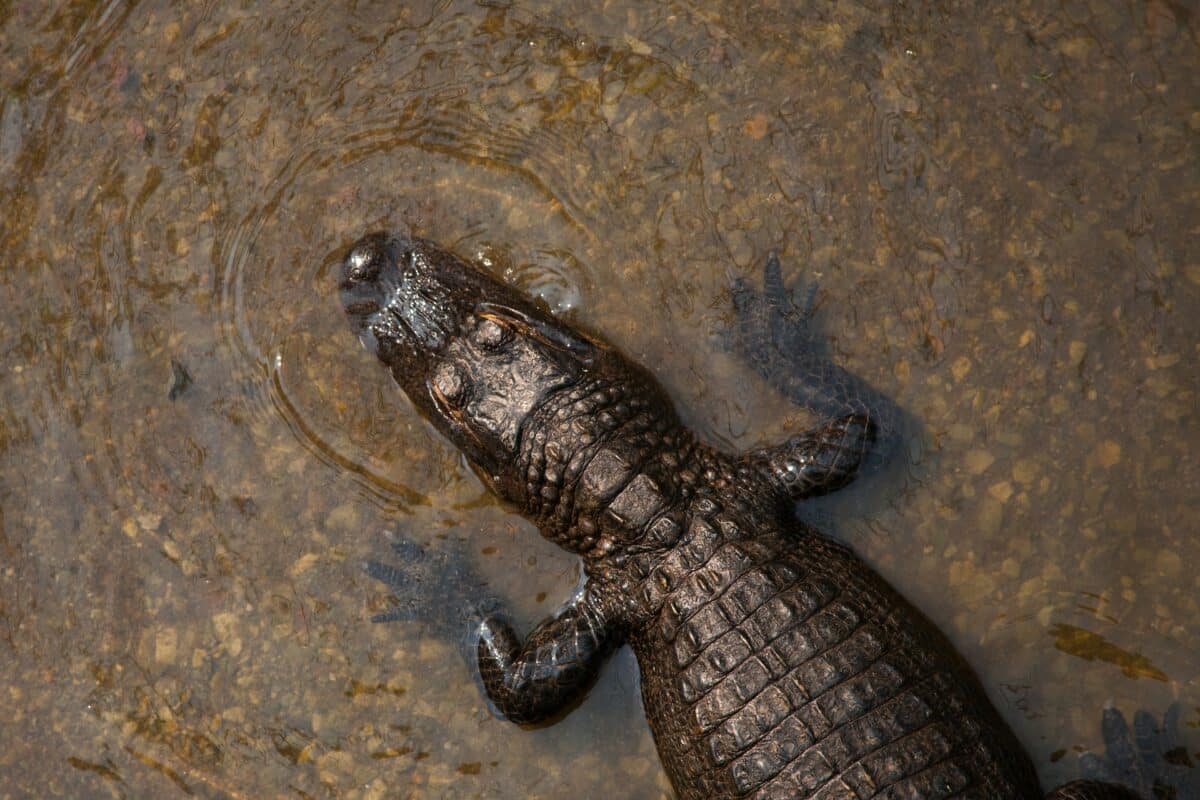
On the other hand, the Nile crocodile is a formidable aquatic predator. These reptiles are opportunistic feeders and consume a wide range of prey. Their diet consists of fish, reptiles, birds, and mammals that approach the water’s edge. Nile crocodiles use their powerful jaws and excellent swimming ability to surprise their prey and drag them underwater. They often lie in wait near the water’s edge, using their camouflage to blend into the environment before launching a swift and deadly attack.
While both animals are carnivorous, the African lion’s diet is more diverse and primarily focused on large terrestrial prey, while the Nile crocodile relies on opportunistic feeding near bodies of water. Likewise, the lion’s cooperative hunting strategies contrast with the crocodile’s solitary and patient approach.
Means of Defence
African Lion

The African lion relies on its physical attributes and social structure as a means of defense. With its muscular physique, sharp claws, and powerful jaws, the lion can intimidate and overpower potential threats.
Additionally, their cooperative hunting strategy provides an advantage. They can work together to protect their pride from intruders or potential predators. Lions may engage in defensive behaviors such as roaring loudly, charging, or displaying aggressive postures to deter threats.
Nile Crocodile
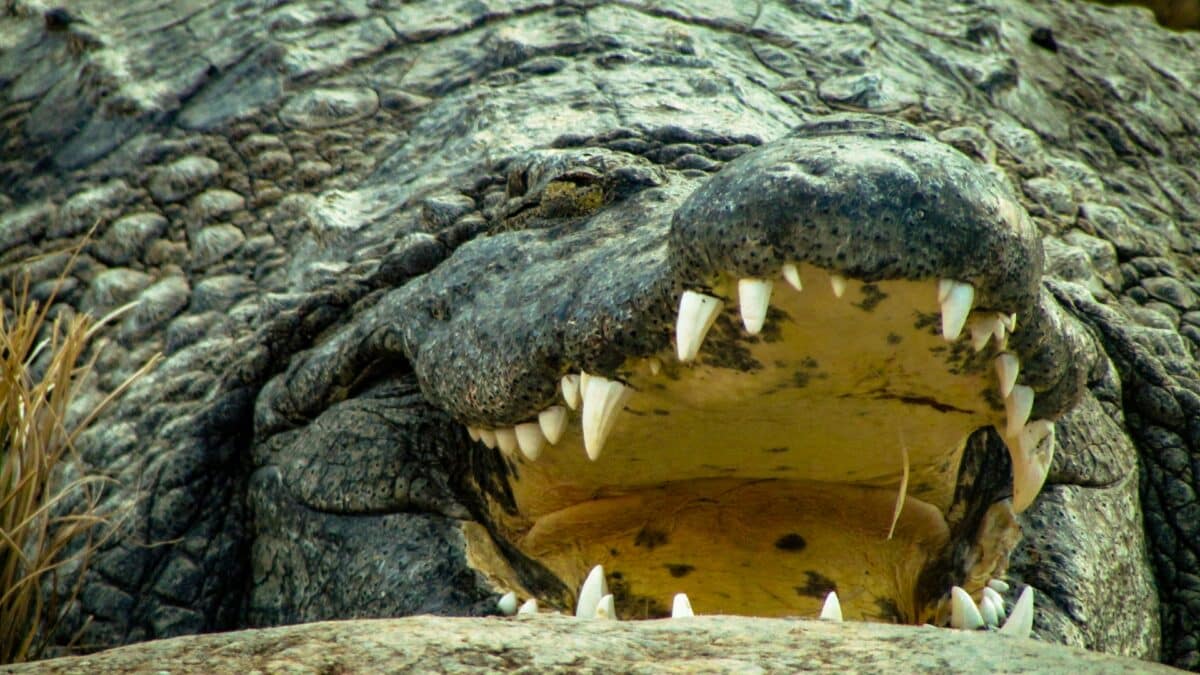
In contrast, the Nile crocodile possesses a set of physical adaptations that serve as its primary means of defense. Their robust bodies, thick and scaly skin, and powerful jaws filled with sharp teeth act as formidable deterrents against predators.
When faced with a threat, the crocodile typically relies on its strong bite and ability to swim swiftly to escape or defend itself. They may snap their jaws, lunge forward, or engage in territorial displays to warn off potential threats.
You might also like our post about the Saltwater Crocodile Vs. African Rock Python.
Swimming Abilities and Aquatic Adaptations

Naturally, the Nile Crocodile, being an aquatic animal, is much better at swimming than the lion. But that being said, the lion’s swimming talents shouldn’t be overlooked! So, while both animals can navigate water, their proficiency and adaptations differ significantly.
Lions often avoid deep water and are much more comfortable on land, where they showcase their exceptional agility and speed. Their bodies are not specifically adapted for aquatic environments, and their primary adaptations are geared towards terrestrial hunting.
In contrast, the Nile crocodile is a highly adapted aquatic predator. It is an excellent swimmer, moving effortlessly through water with the help of its streamlined body and powerful tail. Their webbed feet and strong limbs enable them to maneuver swiftly in aquatic environments.
Additionally, their eyes and nostrils are located on the top of their heads. This allows them to submerge most of their bodies underwater while still being able to see and breathe. This allows them to stealthily sneak up on their prey.
Which Animal Is More Likely To Win: African Lion Vs. Nile Crocodile
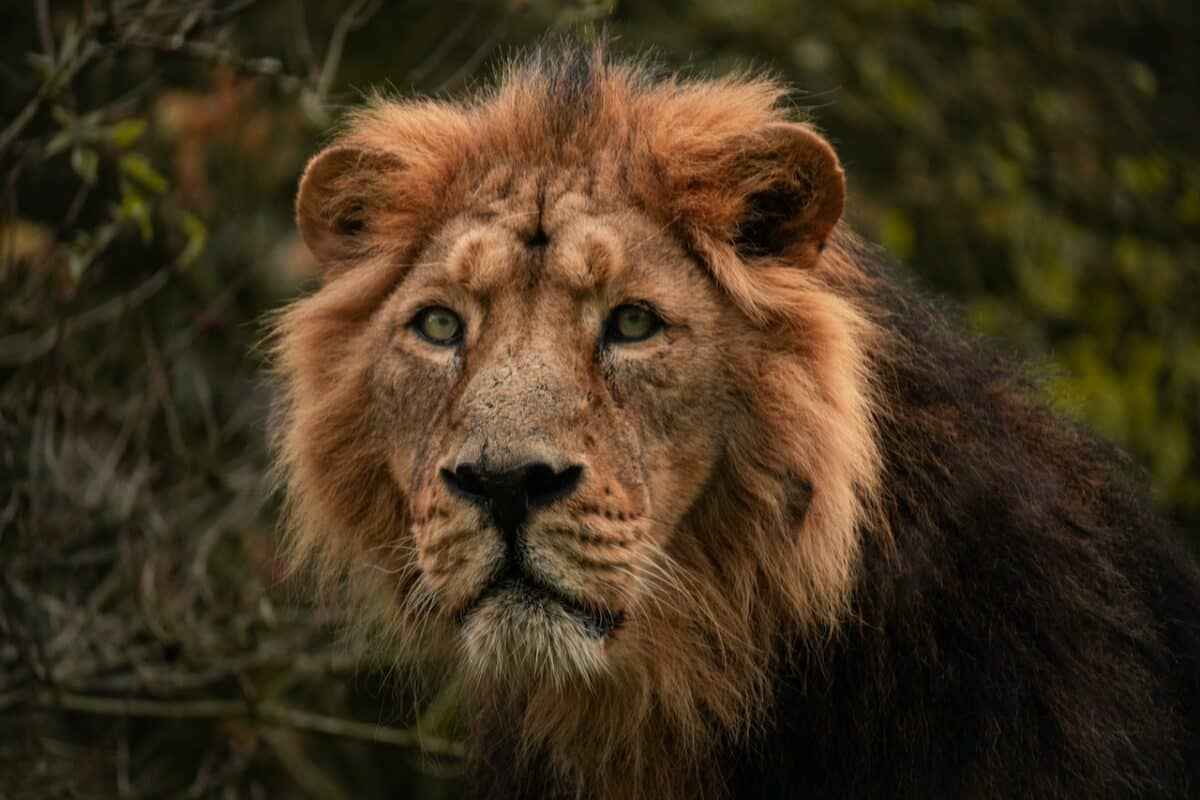
The winner can be challenging to predict when it comes to a fight between an African lion and a Nile crocodile. On the one hand, the African lion is known for its strength, agility, and fierce predatory skills.
On the other hand, Nile crocodiles are one of the most formidable predators in the world, with a powerful bite force and a tough, armored hide. If the lion were to engage the crocodile in the water, it would be at a significant disadvantage. However, if the fight were to take place on land, the lion’s speed and agility might give it the upper hand.
Ultimately, the outcome of such a fight would depend on a variety of factors, such as the size and strength of each animal, the location and terrain of the fight, and even the luck of the draw. Despite the uncertainty, one thing is for sure: any encounter between these two apex predators would be a battle for the ages.
How We Can Help Protect These Species From Extinction
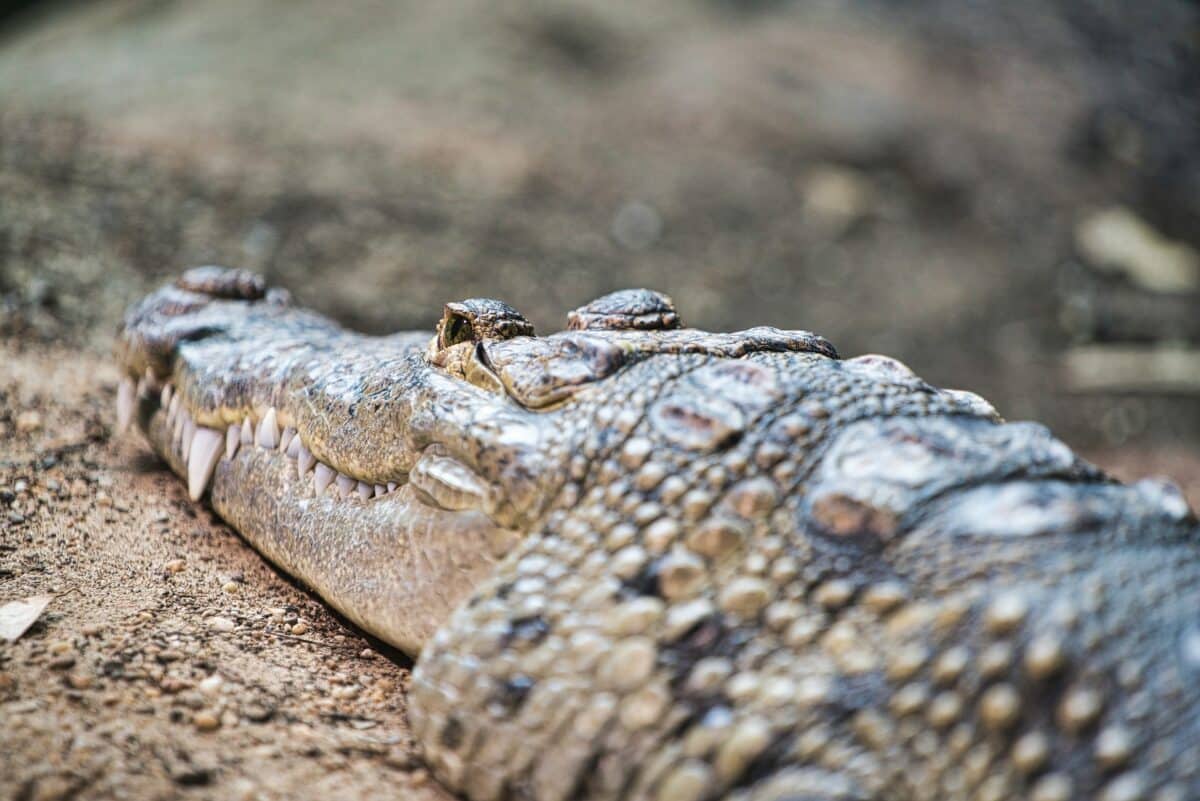
One of the things that the African lion Vs. Nile Crocodile actually do have in common is the threat of extinction. The lion population declined by as much as 43% in the last two decades and the crocodile population faces severe habitat loss and hunting.
One way we can help is by supporting conservation efforts, such as funding and volunteering for wildlife organizations that work towards protecting these species. Or even just spreading the word about their endangerment status to raise awareness goes a long way!
Additionally, reducing our carbon footprint and being mindful of our environmental impact can help mitigate climate change’s effects on their habitats. It’s up to all of us to do our part.
FAQs
Nile crocodiles can exhibit aggressive behavior, especially when defending their territory, protecting their offspring, or during feeding. They are known to be highly opportunistic predators and can be dangerous to humans and other animals that venture near the water.
It is estimated that the bite force of a large adult Nile crocodile can exceed 5,000 pounds per square inch (psi), making it one of the most powerful bites in the animal kingdom.
The African lion population has experienced significant declines in recent decades. Currently, the estimated population is believed to be between 20,000 to 30,000 individuals in the wild.
Lion teeth are highly specialized for hunting and tearing through flesh. Their sharp incisors and canine teeth allow them to grab and hold onto prey, while their strong molars are used for crushing bones and tearing meat.
African Lion Vs. Nile Crocodile: Wrapping Up
In conclusion, the African lion and Nile crocodile possess unique strengths and adaptations that allow them to thrive in their respective environments. The lion’s speed, agility, and cooperative hunting strategies make it a formidable terrestrial predator. On the other hand, the crocodile’s powerful bite, sturdy body, and excellent swimming abilities make it an apex aquatic predator.
However, despite their differences, these species share a common concern: declining populations and the need for conservation efforts. The African lion population has significantly decreased, while Nile crocodiles face habitat loss and hunting. It is crucial to support conservation organizations, raise awareness, and reduce our environmental impact to protect these majestic creatures.
Thank you for reading this article about the African Lion Vs. Nile Crocodile! Sink your teeth into another comparison:
- Octopus Stuck to Diver’s Back and Won’t Come Off - April 25, 2024
- Magpie Bird Is Reunited with Her Dog Best Friend - April 24, 2024
- Dog Saves Another Dog From Drowning in Fish Pond - April 23, 2024

